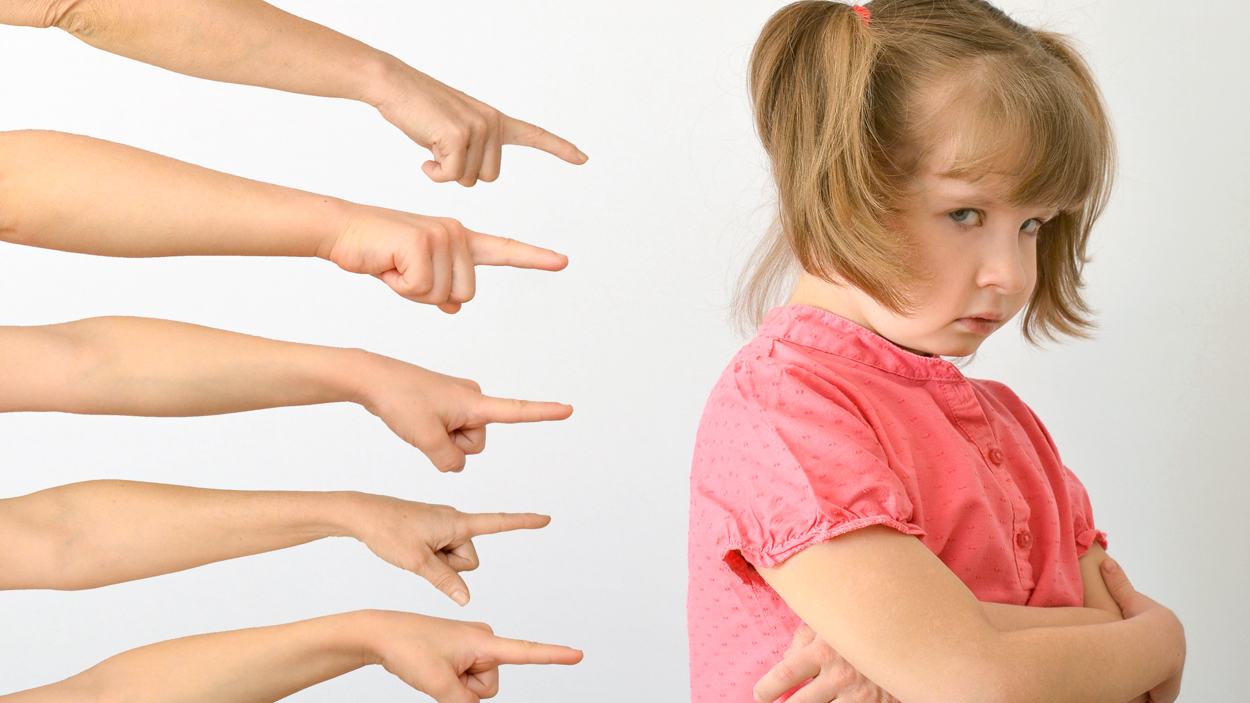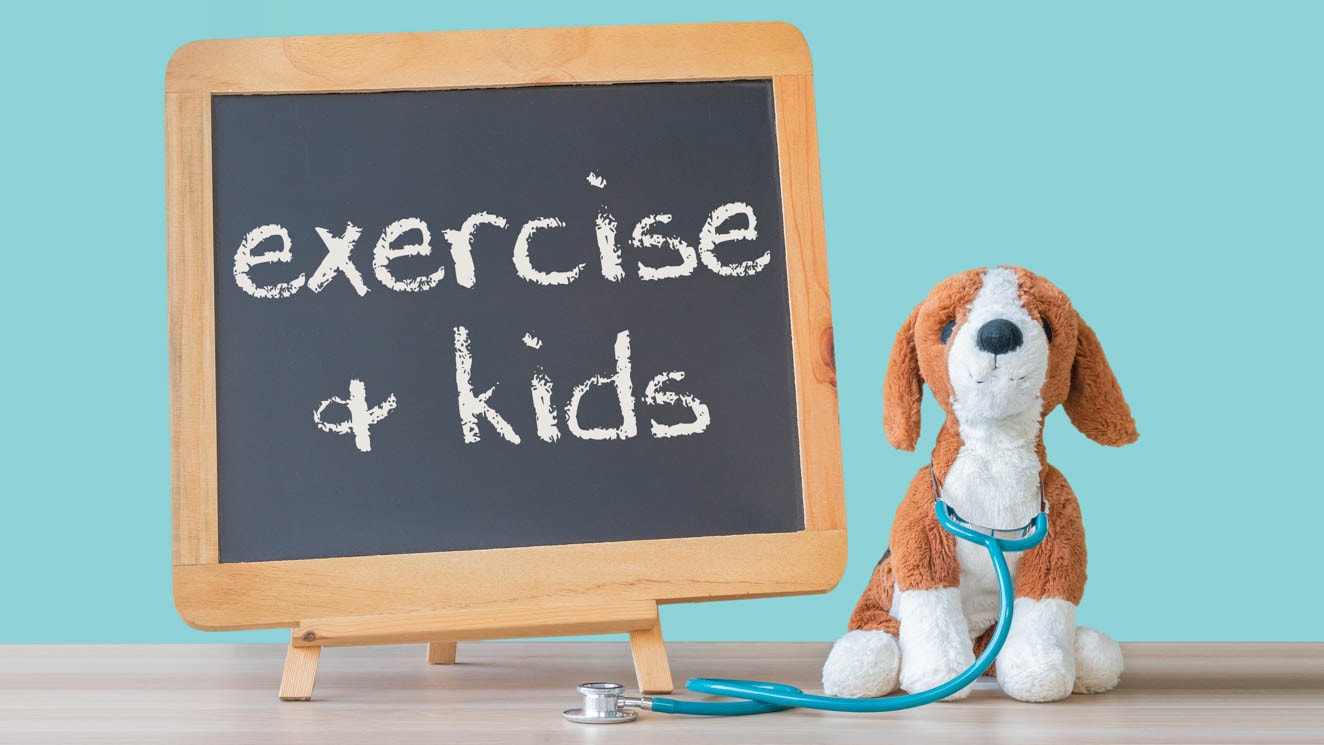

It was 89 degrees and the school parking lot felt like waves of fire as I stood waiting for my son to run outside on the last day of kindergarten. My mom friends were talking about their various summer plans which included home renovations and sleepaway camps, road trips and lazy beach days. As the sweat dripped down my spine and pooled in my lower back, I said, “I plan to start a weight loss program so that I don’t have to wear frigging maternity jeans anymore.”
My mom squad leaped in with supporting sentiments, but, to me, their words sounded like thinly-veiled judgements. I should love my body as it is because I created three amazing kids, they said. Isn’t that good enough? The biggest sting was when one mom put her hand on my waist and told me that I shouldn’t complain because I’m at someone else’s goal weight, and besides, what would I be modeling to my daughter?
I’m not an unhappy person. I’m not suffering from toxic ideas about what I should look like. I don’t have an eating disorder. I’m not working through trauma. I am, however, fat, and it seems to make women around me uncomfortable when I say out loud that I don’t want to be fat anymore.
I want to diet and lose significant weight so that I am back to a healthy BMI and no longer medically obese. At 5’4” and 192 pounds, I’m not comfortable in my own skin. And I used to be. Growing up, I was underweight and kids called me Olive Oil. As a young adult, I even struggled to gain weight. But, now, after having three kids and finding myself with a different kind of weight challenge, I’m surprised by what feels like a lack of support, and I’m sick and tired of feeling ashamed of wanting to change that.
In our current moment of body positivity, women are encouraged to reclaim and love their bodies and to reject impossible beauty ideals. This a wonderful and even healing paradigm shift, especially for women who have been historically marginalized because of their color, shape, ethnicity, and abilities. But it’s gotten to a point where sometimes women like me who actually want to diet, to morph into something different, are considered weak or brainwashed. According to that logic, I’m failing at loving myself.
But what if I think that wanting to be physically healthy is a sign of strength? I do love myself, which is exactly why I want to lose weight.
These days, my body feels ill. Not only am I physically weak from lack of exercise, but I am now pre-diabetic and I suffer from sleep issues — all related to my obesity. My doctor has told me repeatedly that if I lose weight, I can reverse most of the health problems that I am now dealing with. So, to that end, my journey begins — and as part of that journey, I’ll be dieting.
But what if my friend is right that by “coming out” about dieting I will be modeling something bad to my children, especially my little girl. I don’t want to set my kids up for a future of feeling not good enough.
I reached out to Dr. Jane Rosen, PsyD., a clinical psychologist in Los Angeles to find out: Is there a healthy way for me to diet out loud – to eat the way I need to eat, move the way I need to move, and talk openly about all of this – without collateral damage to my kids’ developing senses of self-worth?
Her answer: Yes…and no. It’s totally OK to go on a diet and lose weight with my kids watching, but they are listening, too, and words are everything, she said. So while I don’t need to hide anything, I do need to use the right kind of language — that they can adopt too. For starters, Rosen suggests ditching the word diet, since it comes fully loaded with all sorts of negative connotations.
“Never talk about dieting. [Instead] talk about eating healthy, ‘growing’ foods,” she said. “Similarly, exercise should not be to lose weight but rather to feel better, be stronger, to be ready for what life has in store.”
Equally important: I should avoid critical comments about my body, like when I try on a swimsuit or pass a mirror (and fight the urge to groan). This is a tough one since it’s so automatic and half the time I don’t even notice I’m doing it. Rosen also suggested that I make sure my kids see me getting photographed instead of hiding behind the camera. And I should take opportunities to praise my kids for their inner beauty – like kindness and being helpful.
Rosen’s advice reassured me that I can be open about my body transformation and model a healthy relationship to food, lifestyle choices, and my body. Instead of talking about having to eat my greens, I can talk about fun, creative salads I’m excited to make. Likewise, instead of forcing myself to work out doing things I hate (looking at you, elliptical machine) I can play a blood pumping game of tag with my kids in the backyard.
A month has passed since my awkward conversation with the mom crew at school. In that time, my family has started eating dinner at the table instead of in front of the TV. We’re also experimenting with new, healthy foods every day. I’m down 10 pounds and while I am still way above what my doctor thinks is a healthy weight for me, the changes I’m making now are beginning to show on my shrinking waistline. I talk less about my “diet” now and am replacing restriction-based thoughts (“I can’t eat that…”) with more inclusive ideas of what health can mean across the board.
My body transformation is going to take time. It’s a legit long game here. I’m still unapologetic about the massive change I want to make, and, in the end, I’d argue that this doesn’t put me at odds with what ‘body positivity’ espouses. I don’t judge anyone for their size but I’m still not cool with my size and I won’t be until I hit my ideal goal. But the nice surprise of the summer? Turns out that the re-frame I made for the sake of my kids is one that’s helped me, too.







